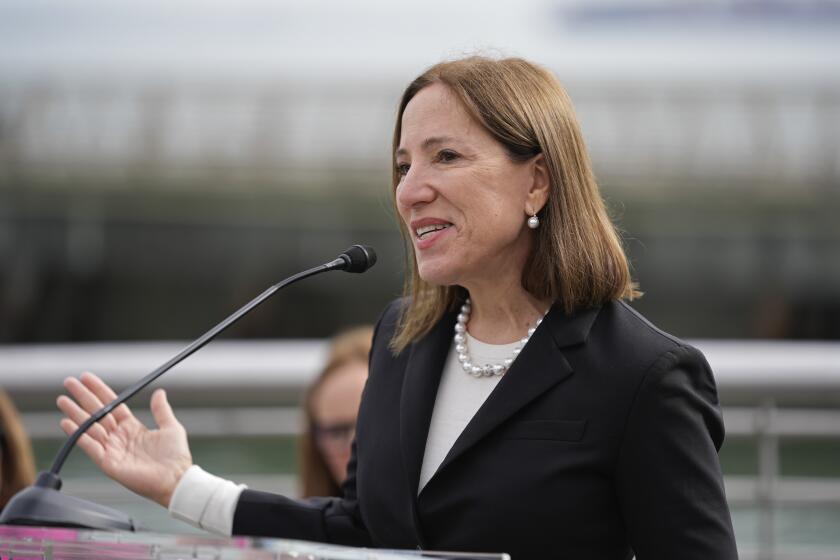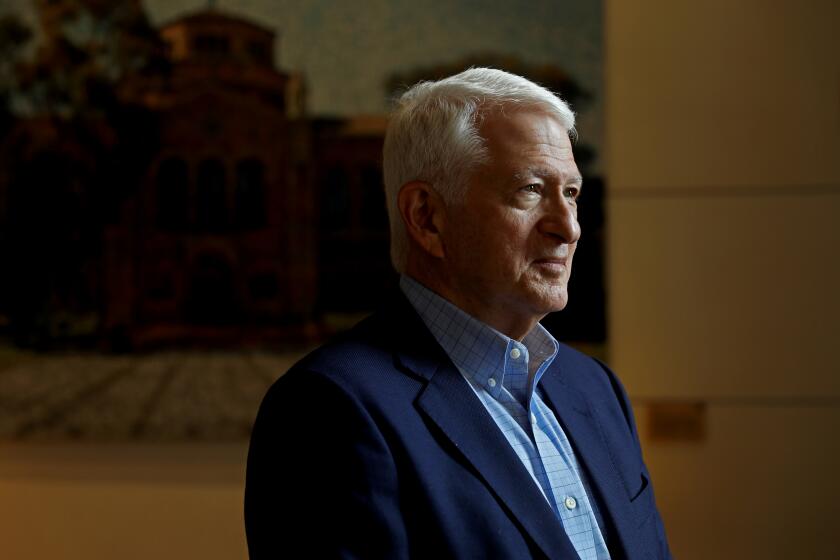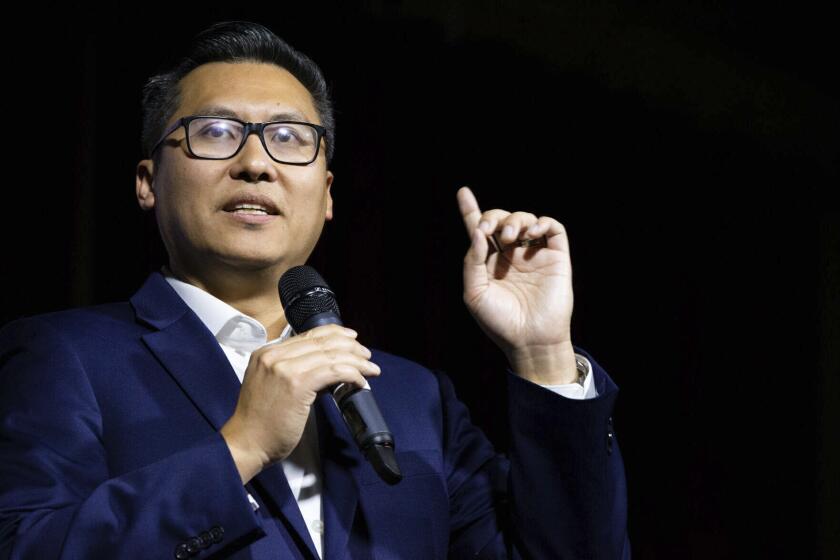COLUMN LEFT/ BRAD SHERMAN : The Governor’s Local Tax Booby-trap : Wilson tells counties to pass ‘general purpose’ tax hikes for public safety; the courts object.
Gov. Wilson proposes that we throw county governments overboard by taking $2.6 billion in property-tax revenues away from them to meet the state’s responsibility to fund schools.
County sheriffs say that, as a result, they will have to discharge jail inmates. County prosecutors say otherwise, but only because they won’t have the staff to prosecute criminals, so the sheriffs won’t have any inmates to release. Los Angeles Dist. Atty. Gil Garcetti, for example, says that he may have to lay off up to 359 prosecuting attorneys--40% of his lawyers.
Under pressure, the governor has hinted that he might limit the revenue grab to $1.3 billion for this fiscal year, perhaps increasing to the full $2.6 billion next year. But he says not to worry--he is willing to throw county governments a life raft. On June 7, he proclaimed a special Nov. 2 election (which will cost the state about $20 million), and urged county supervisors to enact county sales taxes.
Before they climb aboard, county governments should be aware of constitutional booby traps. In Wilson’s native county, San Diego, 51% of the voters voted to enact a special half-cent sales tax to provide money for the criminal justice system, only to have the $300 million raised by the tax impounded by the courts; the money is being held by the Board of Equalization pending refunds. Not a penny has been used to build jails or police stations in San Diego County. Elsewhere, local sales taxes have been invalidated and impounded in Monterey County and have been the subject of an initially successful (and still pending) legal challenge in San Francisco.
The governor has put county governments on the horns of a political and legal dilemma. Wilson’s lawyers argue that counties may adopt a “general purpose” tax with the approval of 50% of county voters. That conclusion has been subject to considerable legal challenge. In 1990, then-Atty. Gen. John Van de Kamp issued an official opinion concluding that such general-purpose taxes were illegal even if endorsed by county voters. Last month Atty. Gen. Dan Lungren ruled to the contrary. But if Van de Kamp was right and Lungren is wrong, even a general-purpose tax could not be constitutionally adopted by county voters.
Wilson urges counties to adopt an increased county sales tax to fund public safety--that is, police, sheriff and fire services. The governor realizes that the only chance to get even 50% of the voters to vote for a tax increase is to promise that the funds will be so earmarked. But that politically necessary promise creates a major legal problem. If the revenues are earmarked for a particular special purpose, the measure creates a special tax; Proposition 13 clearly requires a two-thirds voter majority for approval. No one thinks that any sales tax increase in any county will garner such overwhelming approval this November.
Reading between the lines of the governor’s proposal, one sees an invitation to counties to thread a needle. He urges supervisors first to urge a public-safety tax, which just might garner more than 50% of the vote, and then to tell the courts that the tax is a general levy so that a mere 50% majority is sufficient. If the promise to earmark funds for public safety is too weak, voters won’t trust it; if the promise is too strong, the measure will be invalidated by the courts as a “special tax” unless it receives a nearly impossible two-thirds majority.
If the governor insists on throwing counties overboard, he should at least propose and push through the Legislature a constitutional amendment to validate his county tax plan. Voters could vote on such an amendment on Nov. 2, since we are already locked into the governor’s expensive special election. To put the proposal on that ballot, the governor would have to push the proposal through the Legislature by June 24.
But all this is avoidable if Wilson would accept a solution that is both simple and constitutionally unassailable: continue the state’s current, legally unquestioned and almost popular half-cent extra sales tax for the duration of the budget crisis. This, together with prudent budget trimming and a bit of tax-loophole closing, should allow California to meet its obligations to education without hijacking county property-tax revenues.
More to Read
Start your day right
Sign up for Essential California for news, features and recommendations from the L.A. Times and beyond in your inbox six days a week.
You may occasionally receive promotional content from the Los Angeles Times.






